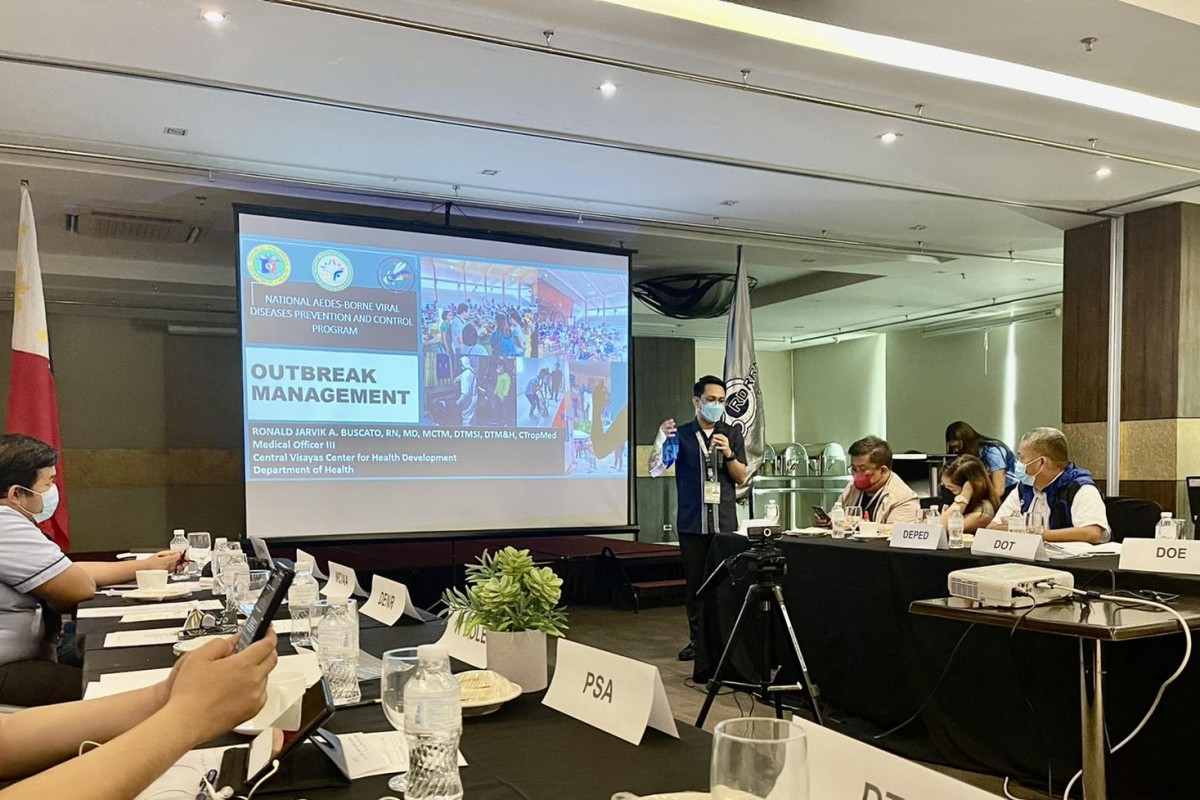CEBU CITY, Cebu, June 1 (PIA) -- Though it is practical to store water with the onset of the rainy season, the Department of Health (DOH) Region 7 is urging households to ensure water containers are aptly covered, amid the rising cases of dengue and a fear of a possible outbreak this year based on historical trend.
Dr. Ronald Buscato, medical officer III of DOH 7, said the aedes aegypti (AE) mosquito that carries the dengue virus thrives on uncovered water containers, laying eggs on its walls which then hatch when submerged in water.
“Although dengue is no longer exclusive during the rainy season but is an all-year round disease,” said Buscato, but added that the practice to store water during the rainy season can multiply dengue cases to alarming levels.
Buscato said based on historical data, dengue outbreaks surface every three years, while four outbreaks were recorded from 2010 to 2020 in the following years: 2010, 2013, 2016 and the last was in 2019.
“We anticipate a possible outbreak this year. We have already raised alarm with a recorded increase in vector population as early as January this year,” reported Buscato during the recent second quarter meeting of the Regional Disaster Risk Reduction and Management Council 7.
Based on DOH7 data, dengue cases in Region 7 have reached 3,557 from January to May 14, 2022, a staggering 324% increase compared to the same period last year of only 839 cases.
This year also saw 31 deaths as of May 14, compared to the four deaths of the same period last year.
The top three localities in Central Visayas that registered the highest dengue cases came from Cebu with Cebu City as top runner with 731 cases or equivalent to 20.6%, followed by Lapulapu City with 639 cases at 18%, and Mandaue City with 236 cases or 6.6%.
Buscato said the search and destroy method is not enough, as aggressive interventions are needed to combat the rising cases of dengue in the region.
The AE mosquitoes have also evolved developing extreme resistance to chemicals, as the DOH 7 does not allow misting without proper guidance.
Local government units are urged to create their respective Dengue Task Force down to the barangays as well as the creation and implementation of anti-dengue ordinance to aid in legislation.
'Plantitos, Plantitas'
Another concern that could contribute to the rise of dengue cases is the rise of a new crop of gardeners dubbed “Plantitos and Plantitas,” said Buscato.
During the lockdowns at the height of the pandemic, more and more people shifted to home gardening as a way to decrease boredom during the quarantine periods.
Unaware to many, Buscato said the fad of taking care of plants became an additional source of breeding ground for the AE mosquitoes as some leaves collect water and become stagnant.
Plantitos and plantitas must regularly check that leaves of plants do not have pooled water, said Buscato.
“Imagine, even the cap of a mineral water bottle which can collect stagnant water can be a breeding ground. AE mosquitoes just need 5 ml of water to lay their eggs. So be sure to throw away even the smallest of things where water can be stored,” Buscato said.
However, he advised that before throwing away the containers, the sides should be scraped including the cap of the mineral bottled water, because the eggs on the sides can still be hatched even after a year.
The DOH 7 medical officer advised parents to reapply mosquito repellant on their children every two to three hours, because it will no longer be effective beyond three hours, and the carbon dioxide children emit is fragrant to mosquitoes, making them vulnerable victims to the virus.
On June 15, the country joins the Asean Dengue Day as the DOH 7 prepares for a massive information awareness campaign under the theme “Crush Dengue Para Di Mag Landing Sa ‘Yo!” (FCR/PIA7)





